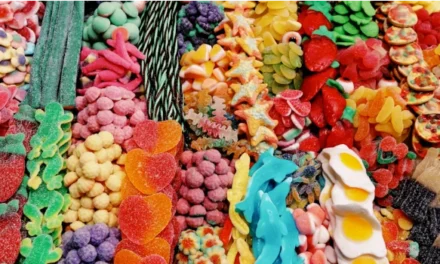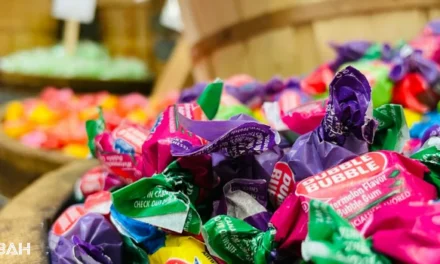As a consumer, it is crucial to have accurate information about the halal status of the products we consume. In this article, we will delve into the truth behind the halal certification of Pringles, dispelling any misconceptions and providing you with the facts you need to make informed choices in 2023.
Unveiling the Halal Status of Pringles
Halal food refers to what is permissible for Muslims to eat according to Islamic law. The criteria for halal food includes:
- The food must not contain any pork or pork by-products
- Meat and poultry must be slaughtered according to Islamic guidelines (zabihah)
- Alcohol is prohibited
- Animals slaughtered in the name of anyone other than Allah are haram
Pringles is a popular snack of potato crisps manufactured by the Kellogg Company. Some key facts about Pringles:
- Introduced in 1967 and now sold in over 140 countries
- Come in a variety of flavors including Original, Sour Cream and Onion, BBQ, etc.
- Sold more than $1 billion annually worldwide
The halal status of Pringles has been debated among Muslim consumers and scholars. The concerns mainly involve the ingredients and manufacturing process:
- Use of emulsifiers, stabilizers, and flavorings that may be derived from pork or alcohol
- Production on shared equipment that also processes haram ingredients
This article will analyze the various arguments and evidence regarding whether Pringles can be considered halal or haram.
Ingredients in Pringles Original
The main ingredients in original Pringles are potatoes, vegetable oils, wheat flour, and flavorings. According to the Pringles website, a typical ingredient list contains:
- Dried potatoes, vegetable oil (corn, cottonseed, and/or sunflower oil), wheat flour, maltodextrin, mono- and diglycerides, salt, rice flour, etc.
However, some specific ingredients have raised concerns about the halal status of Pringles: they may contain pork like pringles smokey bacon flavour.
Emulsifiers/Stabilizers
- Emulsifiers like mono- and diglycerides are added to bind ingredients.
Mono‐ and diglycerides can be derived from animal fats or vegetable oils. If derived from animal fats then they will not be halal.
Flavorings
- The source of natural and artificial flavorings is questionable.
Natural and artificial flavors may contain alcohol or be derived from animals.
Beef Extract
- Some Pringles flavors like Loaded Baked Potato contain beef extract, which is definitely haram.
The use of ambiguous ingredients makes it difficult to determine the halal status of Pringles conclusively.
Manufacturing Process
The manufacturing process of Pringles also raises concerns about contamination with haram ingredients:
- Pringles are produced in facilities that also process non-halal foods.
Kellogg’s produces other non-Halal foods on equipment used for Pringles. The equipment is cleaned between production runs, but shared equipment makes cross-contamination likely.
- The cleaning process may not sufficiently remove haram ingredients according to some scholars states:
Production lines are washed down between haram and halal production, but complete removal of all traces of contamination has been debated.
- Alcohol may be used during processing and production.
Trace amounts of alcohol used during processing may remain in the end product.
Overall, the use of shared equipment and potential residual contamination makes the production process a point of contention regarding the halal status of Pringles. Proper cleaning procedures and alcohol removal need to be verified.
Halal Pringles Certification
The halal certification of Pringles varies globally:
- In Malaysia, some Pringles flavors are certified halal by JAKIM.
Pringles made in Malaysia have the Halal logo on the packaging, meaning it has been approved by JAKIM.
- In the UK, Pringles is not certified halal.
In the UK, Pringles is not certified halal nor does it claim to be halal. The manufacturer cannot guarantee 100% halal status.
- In the US, Pringles does not have halal certification from an accredited organization.
The majority of Pringles sold in America do not have halal certification from an approved halal organization.
The lack of comprehensive halal certification from Pringles corporation results in ambiguity regarding the halal compliance of ingredients and manufacturing for much of the global market.
Scholarly Opinions
Islamic scholars have analyzed the issue of Pringles’ halal status based on the ingredients and production process. Their main arguments include:
Permissibility of highly processed ingredients
- Some scholars argue that ingredients like emulsifiers are purified during processing, even if originally derived from haram sources.
The chemical transformation of ingredients can remove impurities, rendering them halal.
Effect of shared equipment
- Some contend that shared equipment invalidates halal status, while others argue that proper cleaning removes contamination.
Scholars differ on whether the cleaning process between productions is adequate or if trace elements still render it haram.
Sufficiency of alcohol removal
- Scholars debate whether potential alcohol content from flavorings or processing is evaporated by high heat.
Some argue that high temperatures during frying remove any alcohol that may have been present. But others dispute the validity of this claim.
In summary, scholars weigh these factors differently to reach varying conclusions on the halal compliance of Pringles. There is no consensus, but the evidence and arguments provide guidance.
Is Pringles Halal Or Haram – FAQ
Is Pringles Halal?
Yes, Pringles are considered halal.
What are the ingredients used in Pringles?
The ingredients used in Pringles include wheat starch, vegetable oil, maltodextrin, and various flavors such as sour cream and cheddar cheese. Please refer to the ingredients list on the packaging for specific details.
Are Pringles flavors halal?
Yes, most Pringles are halal. However, it is important to check the specific ingredients list and look for any haram ingredients if you are concerned about a particular flavor.
Are Pringles Original flavor halal?
Yes, Pringles Original flavor is halal.
Do Pringles contain any pork?
No, Pringles do not contain any pork ingredients.
Is Pringles certified as halal?
No, Pringles do not have a specific halal certification. However, they are considered halal by most Islamic scholars due to their ingredients.
Are all Pringles flavors halal?
Not all Pringles flavors are halal. Some flavors like beef and bbq pringles may contain haram ingredients. It is important to check the ingredients list for each flavor before consuming.
Which Pringles flavors are halal?
Variety flavors of pringles such as Pringles Cheddar Cheese, Sour Cream and Onion, and pringles Salt are generally considered halal. However, it is recommended to check the ingredients list to ensure no haram ingredients are present.
Are Pringles suitable for Muslims?
Yes, Pringles are suitable for Muslims as they are considered halal. However, it is always advisable to check the ingredients list and look for any haram ingredients before consuming.
What should I do if I am unsure about the halal status of Pringles?
If you are unsure about the halal status of Pringles or any other food product, it is best to consult with a reliable Islamic authority or scholar who can provide guidance based on your specific requirements.
Conclusion
In reviewing the main considerations regarding Pringles’ halal status, there are strong cases on both sides:
-
On one hand, the ingredients and manufacturing process raise potential doubts:
- Use of emulsifiers, flavorings, and beef extract of questionable halal status
- Shared production equipment may not be adequately cleaned
- Traces of alcohol from processing could remain
-
On the other hand, some factors suggest Pringles may be acceptable:
- Highly processed ingredients can be sufficiently purified
- Proper cleaning between productions may remove contamination
- High frying heat could evaporate any alcohol content
Overall, the evidence does not clearly prove that Pringles are definitively halal or haram. There are reasonable arguments on both sides from Islamic scholars. Given the lack of certification and potential questionable ingredients, stricter interpretations would consider mainstream Pringles varieties to be haram. More lenient interpretations could find them sufficiently permissible.
In the absence of clear halal certification, concerned Muslim consumers may wish to exercise caution and avoid Pringles or verify particular manufacturing details with the company if possible. This issue highlights the importance for food companies to be transparent about their ingredients and processes to address halal consumer concerns.





